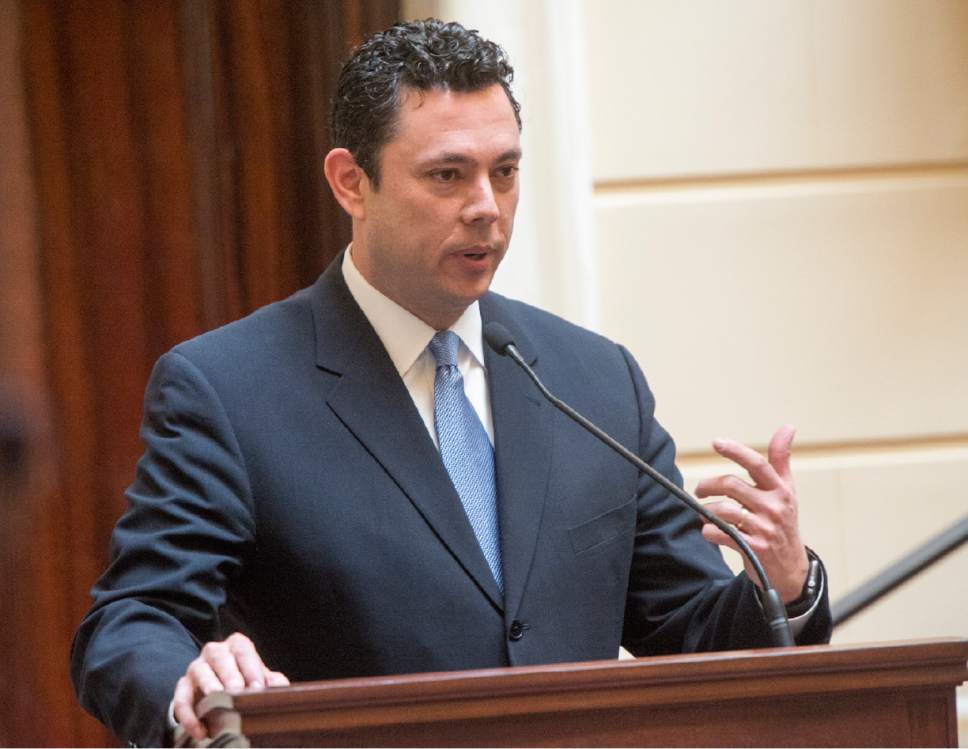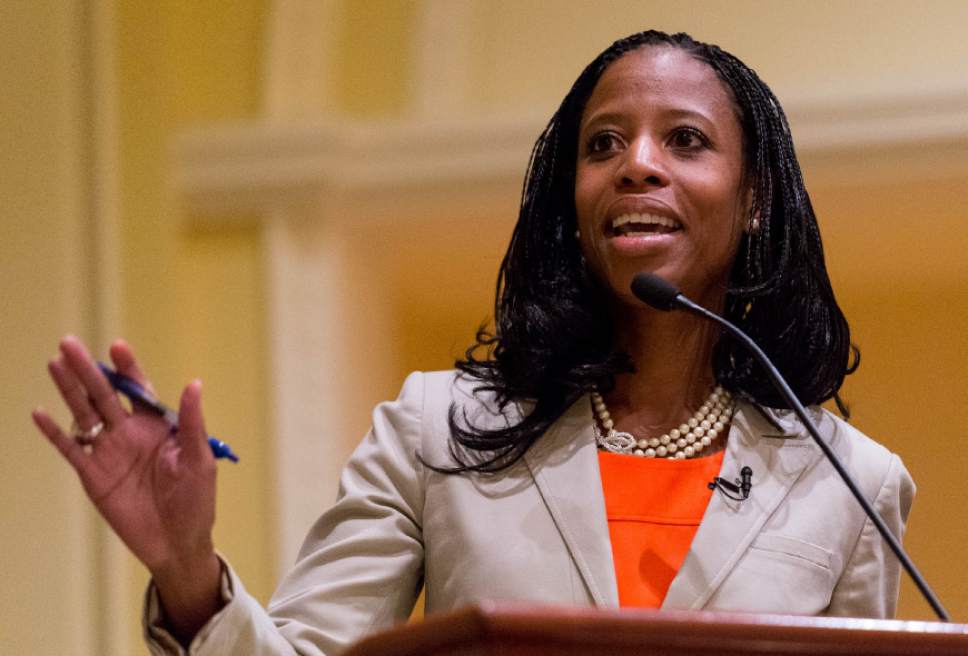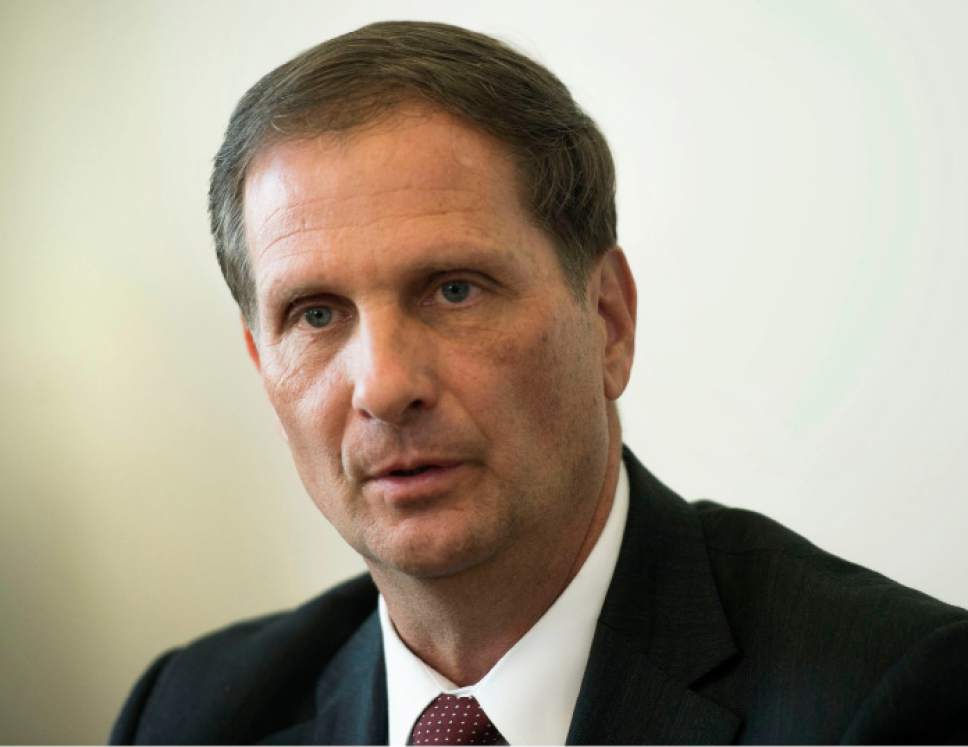This is an archived article that was published on sltrib.com in 2017, and information in the article may be outdated. It is provided only for personal research purposes and may not be reprinted.
Washington • After initially voting to neuter an internal ethics watchdog, House Republicans reversed course Tuesday amid criticism by Democrats, the public and President-elect Donald Trump.
But it may not be the last time the Office of Congressional Ethics (OCE) is targeted.
House Republicans voted in closed chambers Monday night to rename the OCE as the Office of Congressional Complaint Review, fold it under the lawmaker-run House Ethics Committee and bar the new office from employing a spokesperson or referring any wrongdoing to prosecutors.
All four of Utah's four House GOP members voted behind closed doors to change the OCE — Reps. Rob Bishop, Chris Stewart, Mia Love and Jason Chaffetz.
"Independent, nonpartisan ethics committees are critical bodies to prevent abuse and fraud within our government," Stewart said in a statement. He added that the rules change the GOP was initially seeking would have restructured the committee to determine where it falls in the legislative branch and offered additional due process protections for those accused of wrongdoing.
"We will spend the next few months working to get this reform right," Stewart said.
Several House members who have faced OCE probes spoke out Monday night about what they said were unfair practices of the office. Judiciary Chairman Bob Goodlatte, R-Va., pushed an amendment to the new rules for the 115th Congress that he said would provide "protections against any disclosures to the public or other government entities," according to The Washington Post.
The outcry over the changes included the incoming president, who had campaigned on "draining the swamp" of Washington.
"With all that Congress has to work on, do they really have to make the weakening of the Independent Ethics Watchdog, as unfair as it . . . may be, their number one act and priority. Focus on tax reform, health care and so many other things of far greater importance!" Trump said in a series of tweets.
House Minority Whip Steny Hoyer, D-Md., said eliminating the independence of the OCE would have been a "dangerous and ill-conceived move."
"Americans were appropriately shocked and concerned by this decision, and Republicans had to back down from their plan as a result," Hoyer said. "Members of Congress must continue to be held to the highest ethical standards, and an independent ethics office is an important part of ensuring full accountability. Not a good start for House Republicans."
The OCE was created in 2008, with Democrats in control of the House, after a spate of scandals raised concerns that the House Ethics Committee, made up of lawmakers from each party, was too partisan in its investigations.
Love — whom Democrats had criticized for lapses in using her office budget for noncongressional trips to Washington, charged to taxpayers, that she later reimbursed — said that House members should "be held to the highest ethical standards and the American people should have the right to submit complaints and have them taken seriously."
That said, Love added, "The current process has been abused, and has affected both Republicans and Democrats. The Office of Congressional Ethics is in need of reform in order to improve due process, to prevent frivolous, politically motivated complaints and increase transparency.
The American people should always be ahead of negative campaign tactics."
Chaffetz, chairman of the House Oversight and Government Reform Committee that probes potential wrongdoing in the executive branch, said it was clear the OCE needed to be reformed to ensure better due process for those who might fall under investigation. He also said oversight from the Ethics Committee was important to ensure integrity because it is made up of four Republicans and four Democrats no matter who has the majority in the House.
"It's hard to complain when you're asking for a truly balanced, bipartisan group of members to review these matters," Chaffetz said. "I think that's fair."
But he says he agrees with the need to take more time to flesh out what changes are needed.
"They're going to put the brakes on it and come up with a bipartisan solution," he said. "There have been consistent complaints about the OCE from both sides of the aisle."
For his part, Bishop, who had previously served on the Ethics Committee, agreed that members of both parties have "recognized major problems with this program, which is not working."
"It is wise to take our time and draft an appropriate solution that will solve, rather than perpetuate, problems," Bishop said in a statement.
Bryson Morgan, a Salt Lake City native who worked as an OCE investigator and now is an attorney at the law firm of Caplin & Drysdale, says it's clear the office could use some reform but added that what House Republicans had proposed was "shocking" in its breadth and would have essentially shut down much-needed probes.
Morgan noted that enforcement of ethics rules had doubled since the office was established and was an important tool to improve public transparency.
The office "gets criticized on both sides," Morgan said in an interview. "Lawmakers who have been subject to OCE investigations tend to hate it and tend to not like the idea that they could be subject to an investigation by an independent body and then the ethics watchdog groups tend to think the OCE is not aggressive enough and doesn't have sufficient investigative powers. The truth lies somewhere in the middle there but I think overall OCE has been an overwhelming success for the House."
Morgan added that should House members have to vote publicly on changes to the OCE, they may not be as willing to gut key aspects as they were in private.







